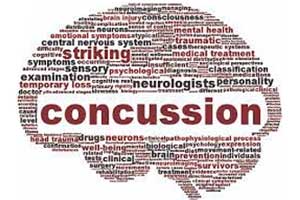- Home
- Editorial
- News
- Practice Guidelines
- Anesthesiology Guidelines
- Cancer Guidelines
- Cardiac Sciences Guidelines
- Critical Care Guidelines
- Dentistry Guidelines
- Dermatology Guidelines
- Diabetes and Endo Guidelines
- Diagnostics Guidelines
- ENT Guidelines
- Featured Practice Guidelines
- Gastroenterology Guidelines
- Geriatrics Guidelines
- Medicine Guidelines
- Nephrology Guidelines
- Neurosciences Guidelines
- Obs and Gynae Guidelines
- Ophthalmology Guidelines
- Orthopaedics Guidelines
- Paediatrics Guidelines
- Psychiatry Guidelines
- Pulmonology Guidelines
- Radiology Guidelines
- Surgery Guidelines
- Urology Guidelines
Blood biomarkers can easily detect & confirm concussions

Specific small molecules in blood plasma may be useful in determining whether someone has sustained a mild traumatic brain injury (mTBI), commonly known as a concussion, new research suggests.
The study was conducted by Massimo S. Fiandaca and associates. Six specific small molecules from blood plasma were discovered in a group of college athletes who had been diagnosed with concussions. When these molecules were assessed, their combined presence accurately predicted whether teammates had sustained a mTBI or not. This suggests that these small molecules might be clinically relevant biomarkers of mTBI. The same six biomarkers were then tested in a separate group of individuals, without and with mTBI, and the results replicated the athlete findings.
Such a diagnostic test might revolutionize the management of civilian and military concussions, including strategies to avoid post-concussive complications and more severe consequences, such as chronic traumatic encephalopathy.
"Such blood tests are important in determining not only whether someone has sustained a concussion, which is not currently an easy task, but may eventually prove useful in defining when injured individuals may be eligible to safely return to regular activities," said Massimo S. Fiandaca, MD.
Fiandaca said there is a clear need to improve diagnostic capabilities, which could reduce underreporting of mTBI and allow more appropriate care to be delivered to concussed individuals.
Around 40 million individuals worldwide have been diagnosed with mTBI and falls represent the most common cause associated with it. Clinical practitioners require a relevant and reliable, minimally invasive, objective diagnostic test to determine high versus the low probability of mTBI in a timely manner.
The study is published in the Journal PLOS One
For more reference log on to: https://doi.org/10.1371/journal.pone.0195318

Disclaimer: This site is primarily intended for healthcare professionals. Any content/information on this website does not replace the advice of medical and/or health professionals and should not be construed as medical/diagnostic advice/endorsement or prescription. Use of this site is subject to our terms of use, privacy policy, advertisement policy. © 2020 Minerva Medical Treatment Pvt Ltd